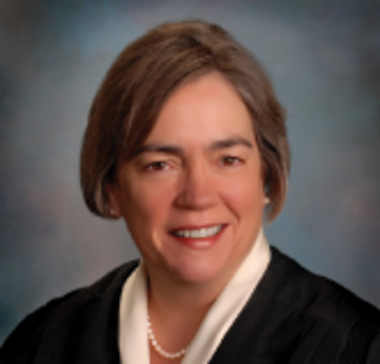LGBT History Month celebrates both large victories and smaller ones

by Rob Howard
Associate Editor
When we think of gay history, we think of big events: Stonewall; DOMA and the Windsor decision this year overturning it; Don’t Ask, Don’t Tell and its repeal by Congress in 2010; Bowers v. Hardwick in 1986 when the Supreme Court said state laws banning sodomy were constitutional, and Lawrence v. Texas when it ruled sodomy laws unconstitutional; and marriage equality. In 2008, only three states had marriage equality, and California lost it in the general election because of Prop 8.
We’ve come a long way since President Obama was elected in 2008: Don’t Ask, Don’t Tell is gone; DOMA was overturned by the Supreme Court; Prop 8 was ruled unconstitutional; 13 states and the District of Columbia now have marriage equality. We have a President that supports our drive for equal rights. It is good to think big.
But during Gay and Lesbian History Month, it is good to think small too. In the states The Gayly serves, we have had our victories, which we celebrate. And we have had our defeats, which tend to energize us for the next battle we need to fight. A notable victory, in Texas, was the decision of the Supreme Court in Lawrence. Sally Gilbert does a great job of explaining that decision elsewhere in this issue.
Over the past few decades in Oklahoma, we have had some small but significant victories.
In 1978, the Oklahoma Legislature passed a law that authorized schools to fire teachers for “[engaging] in public homosexual conduct or activity,” and that they were “unfit, because of such conduct or activity, to hold a position as a teacher….” The National Gay Task Force filed a class-action challenge to the law. A state court rejected the legal challenge, and the Task Force appealed to Federal Court. The Tenth Circuit gave a mixed opinion, but found a “real and substantial” effect on legitimate expression, a violation of the First Amendment. They found that the statute was unconstitutionally overbroad, and as a result, school boards can’t fire teachers in Oklahoma for being gay. The Supreme Court upheld the Circuit court by a 4-4 decision.
Of course, Oklahoma has never repealed its sodomy statute. The relic continues to exist in state law: “Every person who is guilty of the detestable and abominable crime against nature…is punishable by imprisonment” for not more than ten years. The law on teachers says any person convicted of this crime cannot be a teacher. Conviction is of course moot, due to the Lawrence decision.
It seems a small victory, a relic of our past, but it was the first gay rights case in the country that made it to the Supreme Court, and it was there because people were outraged, and decided to fight this discriminatory and unconstitutional law.
In 1969, gay men who were arrested in bars and charged with ‘lewd and lascivious public behavior’ went downtown, paid a fine, and that was that. Except for the criminal record and an article outing them in theOklahoman. Paul Thompson was arrested one night, but he took a different tack. He spent the night in jail, hired a lawyer, and took his case to court. The judge ruled the interpretation of “lewd” and “lascivious” too subjective, therefore unconstitutional, and dismissed the charge. Paul went on to become an LGBT leader in the city for decades. He died in 2010.
In 1982, the Oklahoma City police department had a habit of harassing patrons of gay bars, arresting them in the bar for “lewd” behavior, and often roughing them up in the bar parking lot, or in more secluded places. In January, 1983, the police actually tore down the front door of Angles, then a new bar on the strip, during a raid. Owners Scott Wilson and Don Hill filed a federal lawsuit, and the city settled and agreed to obey a permanent injunction against the police department that prevented them from harassing the gay community. Wilson and Hill had the courage to fight city hall, and win.
In 2004, the Oklahoma legislature again took up the cause of bigotry, sending an amendment to the state Constitution banning gay marriage to the people. It passed overwhelmingly.
They also passed a law that said that the state would not allow adoptions by same-sex couples, or recognize legal adoptions by those couples performed outside the state. Federal District Judge Robin Cauthron in 2006 ruled that the measure was unconstitutional, a violation of the Constitution’s due process requirements. Her decision was upheld on appeal.
Judge Cauthron had issued a ruling in another case in 2002, overturning an Oklahoma City ordinance against gay banners being hung under the city’s public banner program. The law was “an unconstitutional infringement on free-speech rights,” said the judge in her order.
These local efforts often are forgotten when we celebrate Gay and Lesbian History Month. People have moved on or died, leaders change, issues go out of style. But the fight for equal rights for the LGBT community moves forward because of individuals asserting their rights under our great Constitution. We owe great thanks to those people, and great thanks to judges like Robin Cauthron.
October 28, 2013





